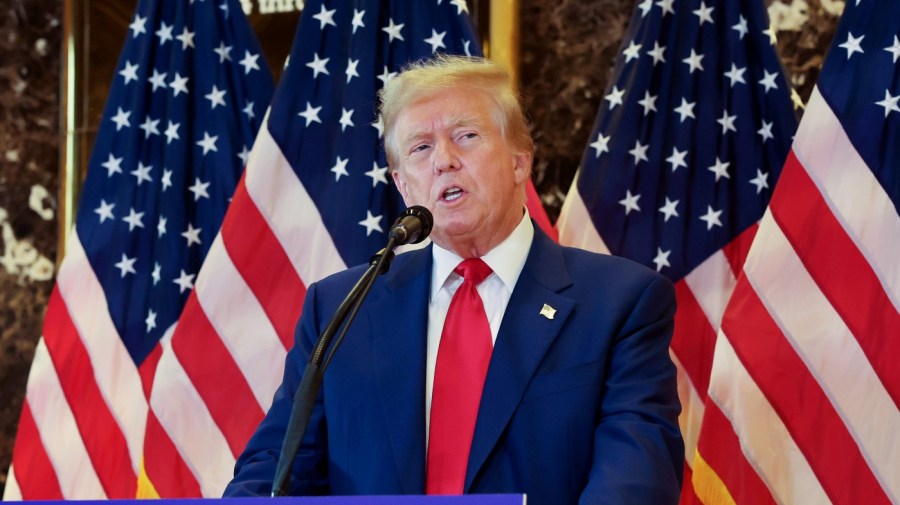
With President Trump returning triumphantly to the White House, there is a sense of resolve rarely seen in Washington. After the revelry and rituals of the inaugural balls recede, after champagne toasts and celebrity sightings are done, the reality remains: corporations want an environment where free market capitalism, not fossilized bureaucracy, can prevail.
It is not an unreasonable prospect.
From cab drivers to real estate developers, companies in the nation’s capital sense a new era where business could evolve and expand in profound ways.
Leaving politics aside and focusing purely on business in D.C., there is a robust ecosystem that transcends the partisan divide. Outside the political theater lies a vibrant economy driven by merchants, real estate, hospitality, restaurants and taxicabs, not to mention a brigade of lawyers, lobbyists and consultants of every stripe.
Washington today is not just a company town that houses the seat of government; it is an epicenter of connections and capital. Although small in area, it looms large in American commerce. Beyond government, the District of Columbia’s stature has grown in the global economy as a catalyst for domestic growth and a beacon for international trade.
Almost 100 years ago to the day, President Calvin Coolidge said, “the chief business of the American people is business. They are profoundly concerned with producing, buying, selling, investing and prospering in the world.” This is often paraphrased as: “The business of America is business.”
Washington looks forward to the changing of the guard every four to eight years. It is typically a time when new energy and expectations accompany a new administration. In that respect, Trump 2.0 promises deregulation, tax cuts and a pro-business environment that will unleash the American entrepreneurial spirit. These are themes that resonate with blue-collar workers, boutique law firms and billionaires alike, all planning for a boom period.
Also essential to Washington’s economic prosperity are the information and influence industries: lawyers, lobbyists and consultants. Often disparaged as “the swamp,” these Washington mainstays underpin much of the national commerce emanating from the nation’s capital. With new policy priorities and regulatory frameworks, the swamp will be as engaged as ever, despite the campaign rhetoric.
Along with the optimism in Washington comes opportunity for even more investment, growth and innovation. The confluence of Wall Street, Main Street and Silicon Valley combines mercantile capitalism and mainstream populism. At the same time, the tech sector is counting on the federal government’s growing reliance on data and cybersecurity solutions to meet global challenges.
Consider, for example, the prospects for cryptocurrencies.
Trump is expected to significantly reshape the regulatory landscape for cryptocurrencies in the United States. Central to this transformation are two key appointments: Paul Atkins as the new chair of the Securities and Exchange Commission and David Sacks as the first-ever White House AI and crypto czar.
Atkins, a former SEC commissioner is recognized for his advocacy of market-friendly policies and a cautious approach to regulation. His nomination aligns with Trump’s objective to establish the U.S. as a global leader in the cryptocurrency sector and a more accommodating framework that encourages innovation within the crypto industry.
Similarly, Sacks, a venture capitalist and early PayPal executive, has been appointed to spearhead the administration’s policies on artificial intelligence and cryptocurrency. He is expected to coordinate cohesive regulatory policies and develop a comprehensive legal framework that provides clarity and fosters growth in the crypto sector.
These leaders are expected to expand the number of crypto exchange traded funds or ETFs, establish a U.S. bitcoin reserve and integrate digital assets into mainstream finance. These are in addition to the introduction of meme coins by Donald and Melania Trump immediately before taking office.
Amid the impending policy and political changes to come under Trump, the pursuit of innovative commercial projects reminds us that the business of Washington endures.
Politics aside, Trump promises to bring capital to the nation’s capital in a way Washington has never seen. And for the people who make things work in D.C. — restaurants, real estate, merchants and service professionals — that may be good news indeed.
Adonis Hoffman writes on business, law and policy. He served in senior legal roles at the Federal Communications Commission and in the U.S. House of Representatives.

